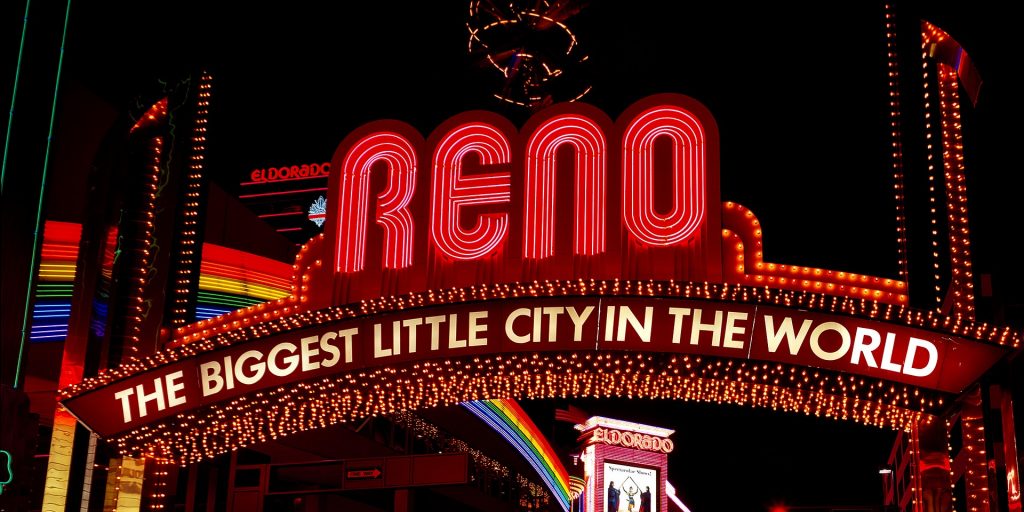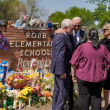Mayors call for peace, gun control legislation at annual conference
The U.S. Conference of Mayors kicked off its 90th annual meeting Friday in Reno, Nev., with a call to action on gun control—a topic the advocacy organization has taken a strong stance on following recent mass shootings in Buffalo, N.Y.; Uvalde, Texas; and Tulsa, Okla.
“It’s more important than ever that we recommit ourselves to peace,” said Lori Lightfoot, mayor of Chicago, in an opening press conference. “How many more have to die before Washington acts? Because we are all on the front lines. I can’t tell you how many calls to mothers and fathers I have made.”
But there’s only so much local government can do to aid victims, and there are “no words” that can “be a balm” to those left behind, she continued. In Chicago, gun violence is a problem that’s “decades in the making,” and is intrinsically tied to socioeconomic status. Last year alone, the city’s police department took 12,000 illegal guns off the streets—more than double the number confiscated in New York City.
“My God, we are putting a band-aid over a gaping wound without the federal government stepping up. We are failing our towns every day when we see babies and young people slaughtered in our streets,” Lightfoot said. “We must get sensible, bipartisan legislation passed like yesterday.”
Francis Suarez, mayor of Miami, and president of the U.S. Conference of Mayors, reflected a similar sentiment, calling on the federal government to take action against “The senseless violence we continue to see in too many places.” Notably, the mayoral conference came out with a stance at the end of last month calling on the Senate to address the nation’s “scourge of gun violence,” according to a statement.
Looking ahead at this weekend’s agenda, the conference, which is the first in-person meeting since 2019, will feature topics such as mental health (the theme of this year’s event), energy innovations and responding to mass shootings from a mayoral perspective. Session titles include “Ensuring underserved urban residents are connected to affordable broadband,” “How your stadium or arena can be your biggest asset during a time of crisis,” and “Financing carbon reduction projects through local carbon credits.”
Among various notable leaders who are on the agenda, Iván Duque Márquez, president of Columbia, will deliver remarks on climate change and Vice President Kamala Harris will speak to the expected 200 or so mayoral attendees.
Climate awards
Earlier this week, the conference recognized mayors working to promote clean energy with its 2022 Mayors’ Climate Protection Awards. The top winners are Quinton Lucas of Kansas City, Mo., for the city’s Zero Fare Transit initiative; and Suisun City, Calif.’s Mayor Pro Temp Alma Hernandez, for a Citywide Energy Infrastructure and Efficiency Program.
“Mayors Lucas and Hernandez are showing how to make better use of our nation’s existing energy resources and expand our clean energy supplies,” said Suarez. “These award-winning cities—and others across the nation—are embracing energy innovations, deploying cutting-edge technologies, and developing more renewable energy, making our cities healthier and more prosperous today and in the future.”
Kansas City, which came in first place in the large city category, was the first American metro area to make its public transportation services free for all riders.
“Zero Fare began with veterans, then high school students. Months prior to COVID-19, city leaders expanded the program to all riders,” reads a report about the program released by the mayoral conference. “This decision resulted in less volatility in ridership during the pandemic.”
The program impacts lower income residents the most, and besides reducing greenhouse gas emissions by encouraging clean energy transportation methods, it’s made the system safer and more efficient.
“Removing fares has eliminated the cause of more than 90 percent of the disputes seen on buses. It has improved efficiency by removing the exchange of money or bus passes, allowing faster boarding times, and resulting in more busses running on schedule,” the report says. “The transit system now saves over $750,000 in administration costs associated with fee collection. And more than 30,000 rides are taken daily, which translates into $1 million a month that is returned to Kansas City families’ pockets.”
In Suisun City, administrators teamed up with ENGIE, a multinational utility company, to “develop and implement a city-wide energy infrastructure and efficiency program.” The initiative included 365 kilowatts of solar photovoltaic systems; 2,167 streetlight replacements; LED lights at all city sites, including a sports stadium; solar and wind-powered park lighting; 21 new HVAC units and upgraded thermostats; and energy efficient window replacements.
The city is projected to reach $12 million in savings over the project’s lifetime through a reduction in annual expendatures of nearly $465,000.
Ten other mayors and projects were likewise honored for their sustainability work, including five in the large cities category: Vi Lyles, mayor of Charlotte, N.C.; Mayor Michael B. Hancock of Denver; Jerry Dyer, mayor of Fresno, Calif.; Mayor Greg Fischer of Louisville, Ky.; and Washington, D.C. Mayor Muriel Bowser. In the small cities category, mayors Paula Perotte of Goleta, Calif.; Kyle Schlachter of Littleton, Mass.; Pat Burt of Palo Alto, Calif.; Angela Birney of Redmond, Wash.; and Alan Webber of Santa Fe, N.M. were recognized.
For more information and to see a complete list of the award winning projects, visit the U.S. Conference of Mayors’ website. A list of the conference’s agenda can likewise be found on the website, and the event’s plenary sessions will be livestreamed on Twitter, Facebook and YouTube.




















